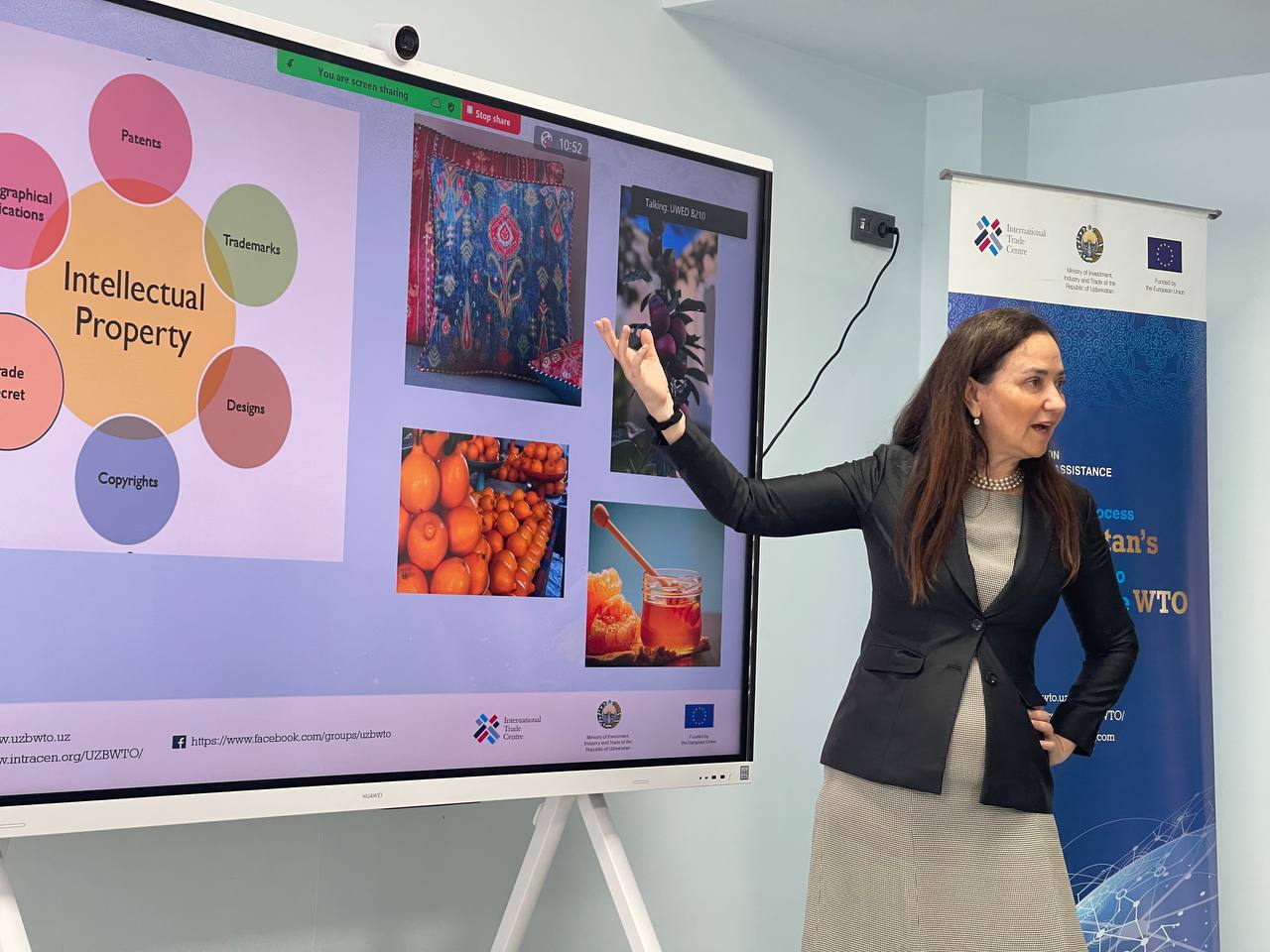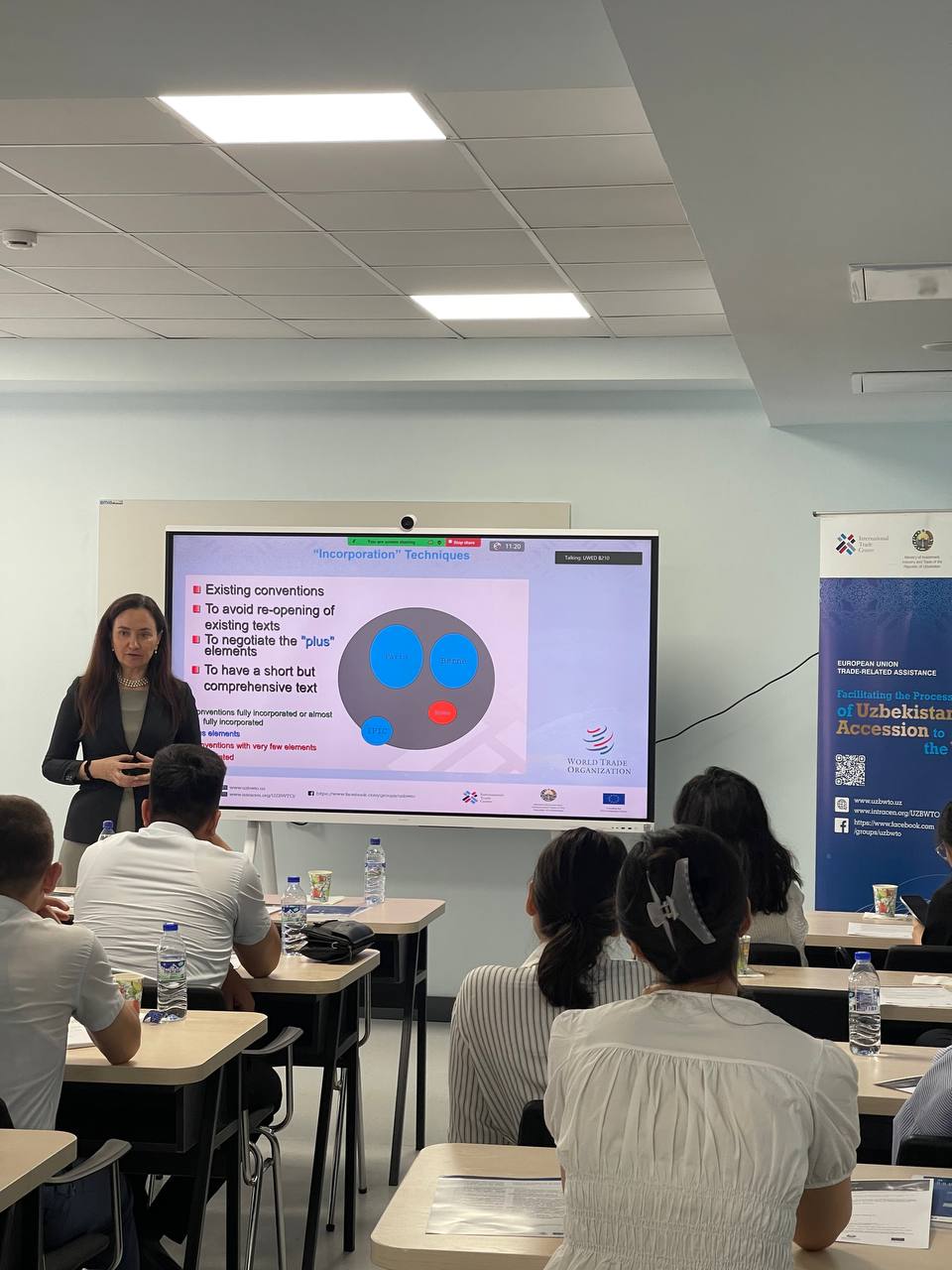Uzbekistan is taking further strides in its WTO accession journey, the most recent being hosting the "Trade Policy Training Program 2024" at the University of World Economy and Diplomacy (UWED) in Tashkent. The European Union finances the program and aims to enhance the skills of Uzbekistan’s trade negotiators in formulating trade policies and handling WTO accession negotiations.
The two-day training, held on July 16-17, titled "Unraveling the Complexities of Intellectual Property within the Context of the Trade-Related Aspects of Intellectual Property Rights (TRIPS) Agreement," provided a detailed understanding of WTO provisions on intellectual property rights (IPRs). Participants learned about current debates, WTO-related agreement disciplines, and strategies to align Uzbekistan's IP laws with TRIPS requirements.

Expert speakers included Irene Calboli, an Academic Fellow at the School of Law, University of Geneva, Professor of Law at Texas A&M University School of Law, Transatlantic Technology Law Fellow at Stanford University, and Distinguished Fellow at the Royal University of Law and Economics in Phnom Penh. She was joined by Umid Yakubxodjayev, Dean of the Faculty of International Law at UWED, Daria Karman, ITC Associate Programme Officer and Project Lead, and Elena Cravet, ITC International Consultant on WTO Accessions and Trade Policy.

The training featured lectures, interactive discussions, case studies, and group activities, enabling participants to engage with experts, share experiences, and apply theoretical concepts to real-world scenarios. The program was designed for government officials, policymakers, trade negotiators, legal practitioners, IP specialists, business representatives, and academics in IP law and trade.
Participants were equipped to understand WTO provisions on IPRs, interpret relevant WTO legal frameworks, manage sensitive topics while promoting national interests, and address domestic stakeholders' concerns in WTO accession negotiations. Uzbekistan, with its diverse climate and cultural heritage, has several products eligible for Geographic Indications (GIs), such as Margilan Silk, Bukhara and Samarkand Ikat, Rishtan Ceramics, Bukhara Carpets, Khiva Wood Carving, Samarkand Plums, Ferghana Valley Apricots, Tashkent Grapes, Uzbek Melons, Samarkand Bread, Bukhara Pilaf, Kashkadarya Honey, Surkhandarya Almonds, Ferghana Valley Walnuts, Uzbek Saffron, Namangan Apples, and Chust Lemons. Establishing these products as GIs could protect their unique qualities, boost local economies, and preserve cultural heritage.
The "Trade Policy Training Program 2024" is an important step in Uzbekistan’s journey towards WTO accession. The speakers highlighted that by enhancing the skills and knowledge of its trade negotiators, Uzbekistan aims to navigate the complexities of global trade and leverage new opportunities for economic growth and development.
Follow Daryo's official Instagram and Twitter pages to keep current on world news.
Comments (0)